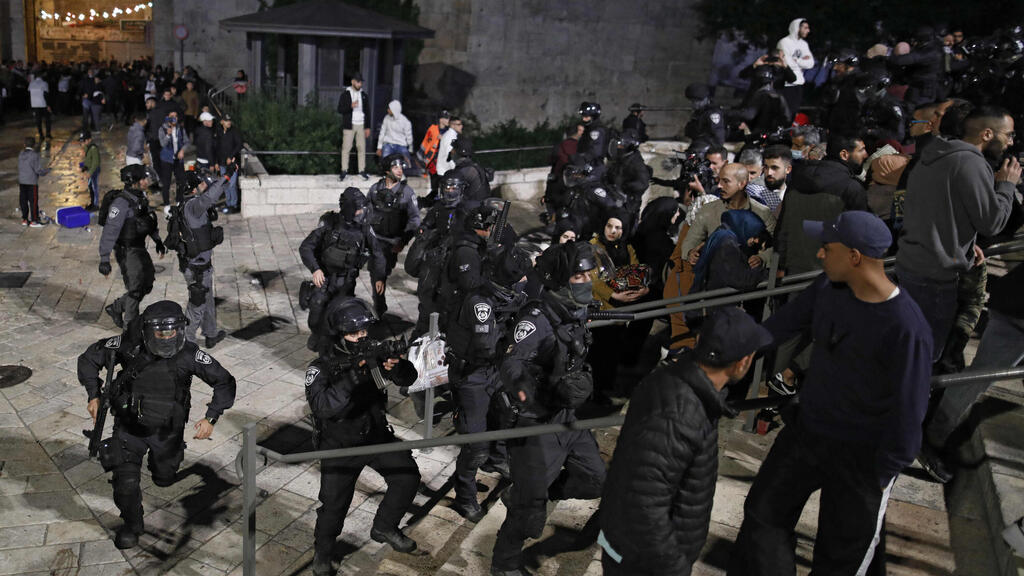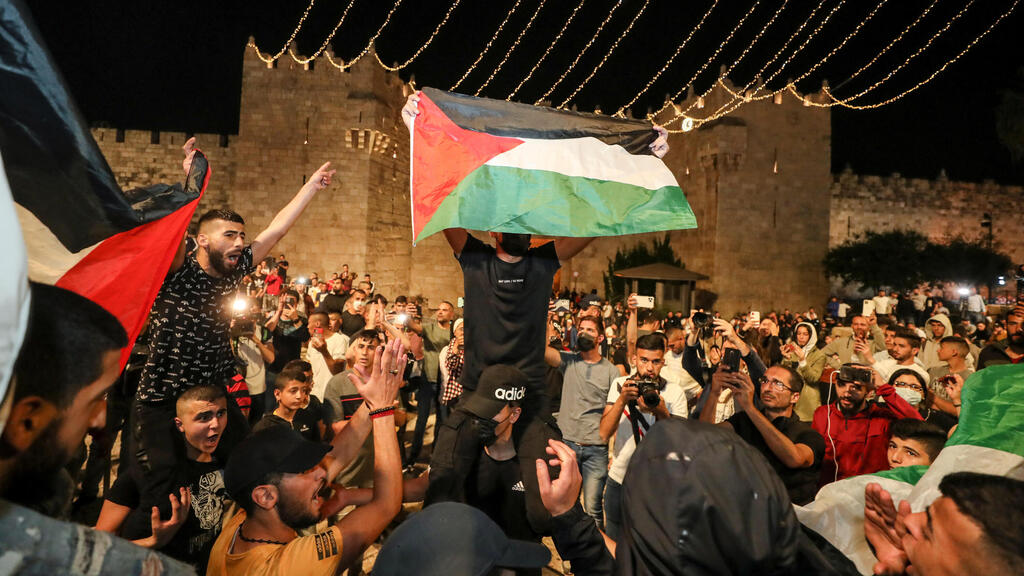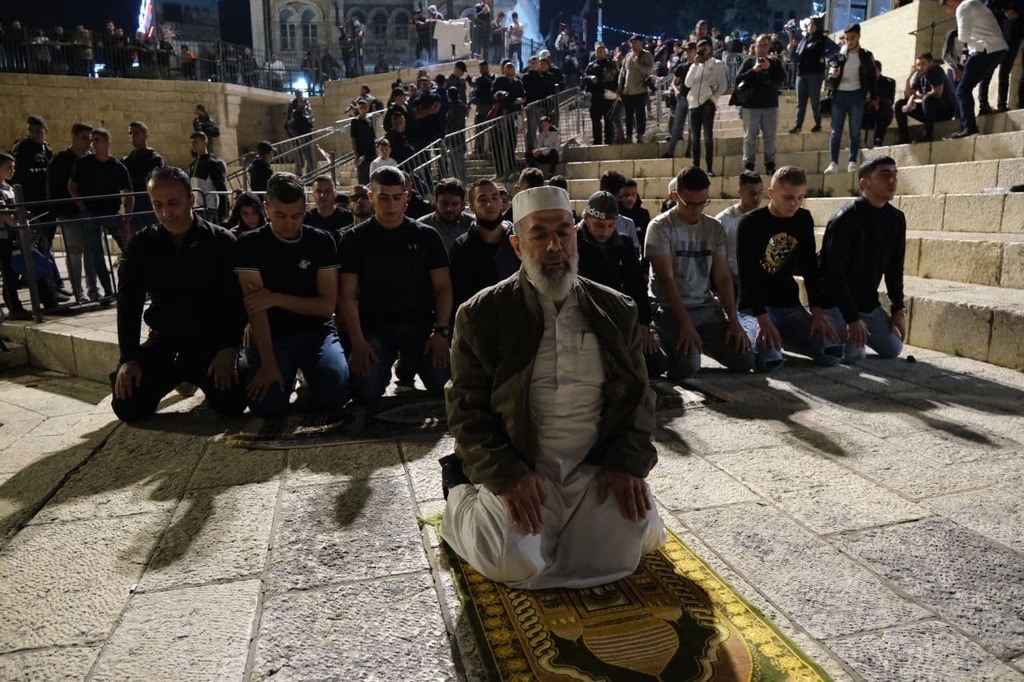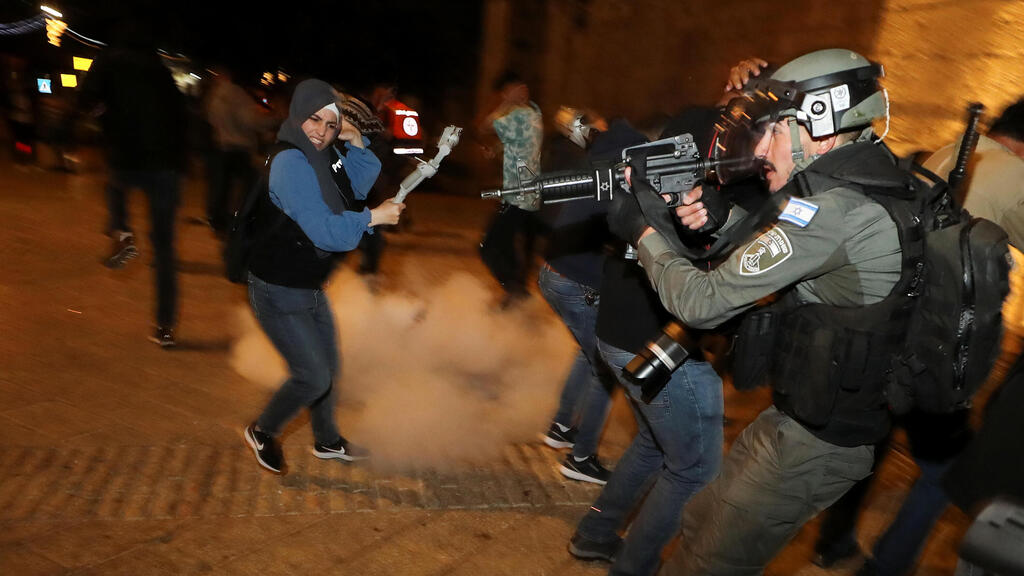Israel’s politicians and media both have a habit of reducing big problems into digestible chunks that are easy to swallow.
Thus though the recent riots in Jerusalem and the Palestinian territories were presented as being triggered solely by the barricades placed at the Damascus Gate plaza during Ramadan.
And then the "generous" police elected to "generously" remove the barricades, which should not have been there in the first place.
The recent demonstrations that began in Jerusalem and spread to the occupied territories cannot be disconnected from Israel’s efforts to try to deny the right to political expression.
Israel has used emergency regulations to justify the closure of Orient House, the PLO headquarters in Jerusalem, and the Palestinian Chambers of Commerce in the city, to arrest senior political and religious Palestinian leaders and to prohibit people from praying in mosques for months on end and from travelling abroad.
And then they are surprised when there is an uprising.
Even the fundamental right to live together as a family is denied to many Palestinians living in Jerusalem if even one family member is not a resident of the city.
True, the Palestinians living in Jerusalem are granted Israeli residency. They can move around freely, drive in their cars and even benefit from government welfare services.
But they are denied something the residents of the nearby Palestinian towns and villages have: the right to political expression.
4 View gallery


Police officers removing Palestinian rioters in Damascus Gate in Jerusalem
(Photo: AFP)
Palestinians in Jerusalem are not entitled to form their own political parties, nor join any Palestinian faction, be they affiliated with the left or the center. In fact, the only elections in which they can participate are for charitable organizations.
Articles 2 and 6 of the Oslo Accords include explicit descriptions of the rights of Jerusalem’s Palestinian residents to vote in the elections for the Palestinian Legislative Council.
Yet, the Israeli police can easily determine that a meeting of Palestinians for political purposes is illegal based on the laws of the British Mandate in 1945, which used these same laws to prohibit Jews from meeting for political reasons before the establishment of the State of Israel in 1948.
The issue of Jerusalem cannot and must not be resolved by oppressive and unrestrained police actions, but by granting them freedom of political expression and the right to establish an independent political entity that will allow Palestinians to choose their leadership freely.
This could be used a vehicle to ease periods of tension such as the ones we have recently witnessed.
But for as long many in Israel see the solution in Jerusalem as solely a security one, they don't the need to for a political solution.
Instead of arresting Palestinian political and religious leaders, they should simply try talking to them.
The 330,000 Palestinians living in East Jerusalem have a right to organize and express a position on political issues that cannot be denied.
The sooner Israel elects to deal with the issue on the political level and not as a security issue, the better it will be for all concerned and the sooner peace and quiet can return to the Holy City.
The author is a Palestinian journalist based in Jordan




